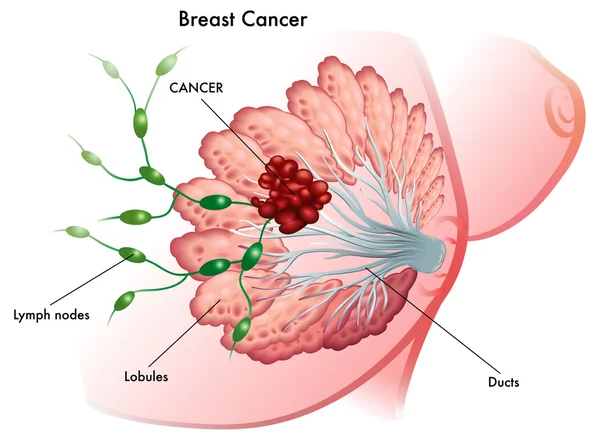Share this @internewscast.com
Find out “Can Smoking of Shisha Cause Breast Cancer?” Shisha, also known as waterpipe smoking, is a popular form of tobacco consumption in many parts of the world. Shisha smoke contains many of the same harmful carcinogens as cigarette smoke, including nicotine, carbon monoxide, and heavy metals.
Research on the link between shisha smoking and breast cancer is still limited, but some studies have suggested that shisha smokers may have an increased risk of developing the disease. For example, a 2017 study published in the journal Archives of Breast Cancer found that shisha smokers had a 20% higher risk of breast cancer than nonsmokers. To gain deeper insights into the intricate world of shisha and breast cancer, it is imperative to delve into the significance of early diagnosis and treatment from the perspective of how harmful shisha on women’s health.
Can Smoking of Shisha Cause Breast Cancer?
Yes, smoking shisha can cause breast cancer. Shisha smoke contains many of the same harmful chemicals as cigarette smoke, including carcinogens that can damage DNA and lead to cancer cell growth.

Research on the link between shisha smoking and breast cancer is still limited, but some studies have suggested that shisha smokers may have an increased risk of developing the disease. For example, a 2017 study published in the journal Archives of Breast Cancer found that shisha smokers had a 20% higher risk of breast cancer than nonsmokers.
Another study, published in the journal Cancer Epidemiology, Biomarkers & Prevention in 2019, found that shisha smokers were more likely to develop breast cancer at a younger age than nonsmokers. The study also found that shisha smokers were more likely to develop triple-negative breast cancer, a more aggressive form of the disease.
More research is needed to confirm the link between shisha smoking and breast cancer, but the existing evidence suggests that shisha smokers may be at an increased risk of developing the disease.
If you are a shisha smoker, it is important to quit to reduce your risk of breast cancer and other health problems. Quitting shisha can be challenging, but there are many resources available to help you, including counseling, medication, and support groups.
Effects of Shisha on Women’s Health
Shisha smoking is a popular form of tobacco consumption that can have a number of negative effects on women’s health. Shisha smoke contains many of the same harmful chemicals as cigarette smoke, including carcinogens, nicotine, and carbon monoxide.
Here are some of the specific effects of shisha smoking on women’s health:
- Increased risk of cancer: Shisha smoke contains carcinogens that can damage DNA and lead to cancer cell growth. Women who smoke shisha are at increased risk of developing breast cancer, lung cancer, and other types of cancer.
- Heart disease: Shisha smoking can damage the heart and blood vessels, increasing the risk of heart disease, stroke, and other cardiovascular problems.
- Lung disease: Shisha smoking can damage the lungs and lead to respiratory problems, such as asthma, chronic obstructive pulmonary disease (COPD), and bronchitis.
- Pregnancy complications: Shisha smoking during pregnancy can increase the risk of miscarriage, stillbirth, and premature birth. It can also lead to low birth weight babies and other health problems in children.
- Fertility problems: Shisha smoking can damage the reproductive system and make it more difficult for women to get pregnant.
- Skin problems: Shisha smoking can damage the skin and lead to premature aging, wrinkles, and other skin problems.
In addition to these specific health problems, shisha smoking can also have a number of other negative effects on women’s health, such as:
- Reduced physical fitness: Shisha smoking can reduce lung function and make it difficult to exercise.
- Increased risk of addiction: Shisha smoke contains nicotine, which is addictive. Women who smoke shisha are more likely to become addicted to nicotine and other tobacco products.
- Increased risk of mental health problems: Shisha smoking can increase the risk of depression, anxiety, and other mental health problems.
If you are a woman who smokes shisha, it is important to quit to protect your health. Quitting shisha can be challenging, but there are many resources available to help you, including counseling, medication, and support groups.
What Kind of Breast Cancer is Caused by Smoking Shisha?
Shisha smoking can increase the risk of developing all types of breast cancer, but it is particularly associated with triple-negative breast cancer (TNBC). TNBC is a more aggressive form of breast cancer that is more difficult to treat.

TNBC does not express the three main receptors that are typically targeted by breast cancer treatments: estrogen, progesterone, and HER2. This makes it more challenging to find effective treatments for TNBC.
Shisha smoke contains a number of harmful chemicals that can damage DNA and lead to cancer cell growth. These chemicals can also trigger inflammatory responses that can promote cancer development.
Read Related Also: Forget fat jabs. The hot 'new' diet craze is… cottage cheese! Shame it looks like cellulite and tastes like milk left in the sun for a week, says CLAUDIA CONNELL
It is important to note that shisha smoking is not the only risk factor for breast cancer. Other risk factors include:
- Family history of breast cancer
- Age
- Genetic mutations
- Certain lifestyle factors, such as obesity and alcohol consumption
If you are concerned about your risk of breast cancer, talk to your doctor. They can help you assess your risk factors and develop a plan to reduce your risk.
If you are a shisha smoker, the best way to reduce your risk of breast cancer is to quit. Quitting shisha can be challenging, but there are many resources available to help you. Talk to your doctor about quitting shisha and ask about resources that can help you.
How Long Does Shisha Stay in Your Body?
The amount of time shisha stays in your body depends on a number of factors, including:
- How much shisha do you smoke
- How often do you smoke shisha
- Your metabolism
- Your overall health
Nicotine, the main addictive substance in shisha, can be detected in urine for up to 4 days after smoking. Cotinine, a byproduct of nicotine, can be detected in urine for up to 10 days after smoking.
Other harmful chemicals in shisha smoke, such as carbon monoxide and heavy metals, can be detected in the blood and urine for shorter periods of time.
It is important to note that even if shisha smoke can no longer be detected in your body, the damage it has caused may be irreversible. For example, shisha smoke can damage DNA and increase the risk of developing cancer.
If you are concerned about the health effects of shisha smoking, the best thing you can do is to quit. Quitting shisha can be challenging, but there are many resources available to help you. Talk to your doctor about quitting shisha and ask about resources that can help you.
Here are some tips for quitting shisha:
- Set a quit date and tell your friends and family about your plan.
- Get rid of all of your shisha pipes, tobacco, and other smoking supplies.
- Avoid places where people smoke shisha.
- Find healthy ways to cope with stress and boredom, such as exercising, spending time with loved ones, or pursuing hobbies.
- Talk to your doctor about quitting shisha and ask about resources that can help you.
Quitting shisha is the best way to protect your health and reduce your risk of developing serious health problems.
What Expert Says
Experts agree that shisha smoking is harmful to women’s health and can increase the risk of developing breast cancer.

- Dr. Michael Thun, director of cancer epidemiology research at the American Cancer Society, has said that “shisha smoke contains many of the same harmful carcinogens as cigarette smoke.” He has also said that “shisha smokers are at increased risk of developing lung cancer and other types of cancer, including breast cancer.”
- Dr. Sameer Abusaad, a medical oncologist at the Dana-Farber Cancer Institute, has said that “shisha smoking is a significant risk factor for breast cancer.” He has also said that “shisha smokers are more likely to develop breast cancer at a younger age than nonsmokers.”
- Dr. Rachel Freedman, a cancer prevention specialist at the University of Michigan, has said that “shisha smoking is a dangerous habit that can lead to serious health problems, including breast cancer.” She has also said that “there is no safe level of shisha smoking.”
If you are concerned about your risk of breast cancer, it is important to talk to your doctor. They can help you assess your risk factors and develop a plan to reduce your risk.
If you are a shisha smoker, the best way to reduce your risk of breast cancer is to quit. Quitting shisha can be challenging, but there are many resources available to help you. Talk to your doctor about quitting shisha and ask about resources that can help you.










